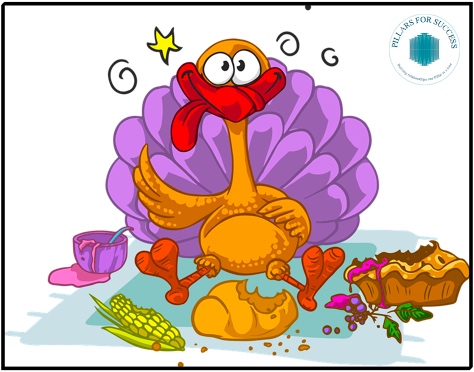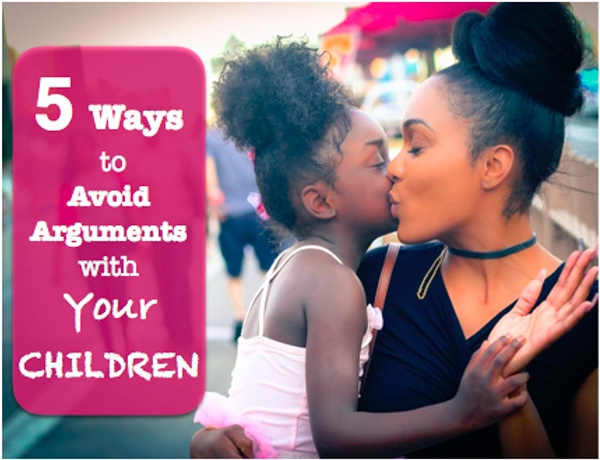Blog
The Mother’s Guide through Autism Podcast focuses on families facing the challenges of Autism along with the related behavioral, communication, and relationship challenges.
Join the Pillars for Success in following the ideas below to focus on how you can… R.E.B.U.I.L.D.
Guess what? Children really do think differently from adults! When your kid disagrees with you or refuses to do what you ask, it’s not because he/she plans and plots to drive you crazy!
KRDO Business Connection w/ Ted Robertson interviewing founder and creator of Pillars for Success, Sandra Kwesell, about her program.
Learn the five habits of an emotionally healthy family and how you can start to help your family feel safe, loved, and happy.
Where do we start after seeing the signs of stress in our families? Is there anyone who has survived the Coronavirus without some type of injury?
Are you sick and tired of hearing, “I don’t wanna,” “You can’t make me,” and “I’m busy now, I’ll do it later?” Do you long for the day when your kids will answer your requests with, “Okay, mom!?” Do you wish you had better parenting skills? Then read on! Two factors strongly influence parenting skills that result in increased cooperation […]
Let’s cover strategies to prevent your child from lying. “Lying” is an area of parenting that presents unique challenges for even the most experienced parents. It is not simply about a challenging/upsetting behavior. From the adult perspective, when children lie they are violating standards of honor and trust. Both of these pain points can have a profound effect on the […]
In the midst of dealing with unexpected challenges and risks during the coronavirus pandemic (i.e. healthcare, finances),millions of us are also facing childcare challenges. It is important to recognize that these challenges can feel even more overwhelming as our families try to deal with the confusion caused by unplanned changes in routines, moods, and social interaction during this pandemic.
The challenges we face on planet Earth are definitely not for the lily livered! The population of the world seems to face one crisis after another. This ranges from threats of war, to mass shootings, to starvation, to violation of human rights, and on and on and on. While the latest crisis is uniquely different from this list, the international spread of […]
Now at the top of the list of the best parenting books available, The 9 Pillars of Successful Parenting covers the 9 main ideas in the Pillars for Success training.
Welcome to one of the most challenging areas of parenting: dealing with our children’s unacceptable behaviors.
I was honored to be interviewed by Sarada Connors during radio show “Our Town” on 740 AM KVOR radio in Colorado.
Emotional regulation in parenthood is equally valuable and impactful on our experiences as we parent our children.
When your child crosses the line and begins testing boundaries and breaking rules, there arises opportunities for a parent/caregiver to set or re-set safe and appropriate boundaries. It is also an opportunity to discover what basic human need the child is trying to meet, whether that is attention, basic survival, or control/power. It is important to remember that speaking in […]
Who benefits from spanking children? Is there a benefit to either the child who is being hit OR the parent who does not know how to control the child by using positive parenting techniques?
In the case of Autism Spectrum Disorder, here are a few of the haunting questions that may echo in your thoughts even when your child is at a very young age. Learn about the support and resources available.
Raising a teenager begins with a parenting style that establishes and reinforces safe limits and boundaries. The ultimate parenting goal by the time a child becomes a teenager is to allow the teen opportunities to further develop independence, self-care, and positive judgment while reinforcing safety even when the temptation to do otherwise is strong.
Dealing with an angry child can be a challenge for any adult. The checklist below helps you gain understanding regarding what makes your child angry. It also offers guidelines for responding to challenging behaviors so that achieving positive outcomes becomes more common. Calming an angry child is all about “emotion coaching.” Help the child overcome negative feelings by learning how […]
Often we think very little about how to improve the parent-child connection. We assume that parenting should be as natural and easy to navigate as breathing. After all, we were raised by adults who parented us throughout our own childhood and adolescence, so why wouldn’t effective and nurturing “parenting” be an automatic skill that is as natural as breathing? As […]
Every parent is a “survivor.” No human being travels life’s journey without experiencing the effects of their early relationships. As you all know, some of those effects are positive and some of those effects are not-so-positive. The parent/child relationship is complex and has so many variables that affect its course.
Let’s explore the behaviors of children who are considered to be “highly sensitive” and the parenting strategies that will support growth.
“How can I get my child to listen to me?” Read on to find out why the characteristics of parent/child communication are such a powerful factor in how our children respond to our requests. Let this post be the first step towards understanding how to avoid and/or reverse defiant behavior as you learn the rules and tools that will help you overcome child defiance.
“Defiance” is one of the most frequently misunderstood behaviors presented by children. The majority of adults consider a child’s “defiant behavior” as a disrespectful challenge that screams the message, “I don’t care what you want! I’m not doing what you told me to do and you can’t make me! And you can’t do anything about it!”
There are resources available if your child shows signs of possible developmental delays. But it’s still scary. In fact, as a parent with a college degree in Elementary Education and Special Education, I’m still scared and don’t always know where to turn for help. Is My Son Showing Developmental Delays? I noticed awhile ago that my two-year-old son didn’t seem […]
Some of my favorite moments are spent with children who are not armed with electronics. With some help from you, their world can still hold opportunities to dig in the sand or pretend to be a superhero or play with each other solely for the purpose of imagining and pretending and being creative.
While we could fill the pages of this blog post with phrases you will want to avoid saying to your child, we have chosen five phrases to serve as examples.
MyBaba guest post on “How to Deal with Toddler Tantrums and the Terrible Twos.”
Regardless of age, addictive behavior is a warning sign of potentially bigger challenges. These challenges can become more complicated and follow an individual throughout his lifetime if not addressed in their early stages.
Many lessons are learned from siblings fighting. For children, sibling rivalry is all about personal value and personal power. This rivalry helps a child to identify his strengths and work to overcome his weaknesses within the safety of his own family.
Toddler tantrums are sometimes frustrating to deal with for parents. That is because children are in growth phase and learning to deal with big emotions. In this article, find out how to deal with child’s tantrums.
Do you feel like you are always arguing with or reminding your kids to handle their chores, keep their rooms organized, finish their homework, clean up after themselves, put their dirty laundry in the hamper, and on and on and on? Point sheets are the answer for your family! You can say goodbye to the daily reminders and nagging. You […]
Coping with a hyperactive child can be a challenge for any parent. The challenge becomes even larger when a child is unable to maintain boundaries of self-control. Have you ever tried to calm a hyperactive child?
We’re never quite prepared for the times when kids say hurtful things, especially when those words are aimed at us. Here are just a few of those painful bullets that have wounded unsuspecting parents.
As you all know, parenting can be a joy and parenting can be hard work. What we sometimes hesitate to talk about is that parenting can also be very frustrating. The answer to the frustration will come from understanding how and why your children think and behave in certain ways—and learning what to do about it.
Forcing your child to say “I’m sorry” doesn’t teach them remorse. Learn why you shouldn’t force them to say “sorry” and what you should teach them instead.
MyBaba guest post titled “What is The Difference Between Bribes v Rewards for Good Behaviour?”
Avoiding power struggles with very young kids, older children, and even teens begins with recognizing the steps that lead to these lose-lose interactions.Your goal is to stop the power struggle by replacing negative confrontation with problem-solving communication. Following these simple suggestions will allow you to find solutions that actually work!
In order to understand the communication and miscommunication between you and your kids we need to first look closely at the general rules of communication. In every communication between two or more people the following characteristics determine the message:
Consider the effects of “guilt” on you and your family.
How many times have you asked yourself, “Am I a bad parent?”
Does struggling with parenting guilt and self-inflicted shame help answer that question?
Often when the topic of the millennial generation comes up, the conversation is full of criticisms of their entitlement and self-indulgence. To avoid judgment, let’s attempt to gain a better perspective.
It’s important to understand that:
While learning how to deal with your teenager, always remember that the most important factor is safety: his safety, your safety, and the safety of those around him. What is the difference between a teenager struggling with the typical challenges of the teenage years and an angry teenager for whom red flags of concern should be waving?
MyBaba guest post on “How to Deal with Tantrums.”
Is the goal to raise “happy children” or is the goal to raise children with high self-esteem and a positive self-image? Is the goal to raise “happy children” or is the goal to raise children who have self-confidence and the ability to problem solve? Children who know how to find acceptable ways to get their needs met?
Keynote speaker during an event for National School Choice Week with Parents Challenge.
Lesson #1: What is Magical Thinking?
Answer: Magical Thinking is a way of understanding and dealing with what is happening around us and to us. It is also a way of helping us deal with things beyond our control. It is taught in parent workshops because it is so powerful in the lives of children.
For many of us Thanksgiving is a genuine joy but for way too many of us, Thanksgiving is a setup! One of the things you want to watch for is that your parenting skills include being honest and not being “too hard” on yourself!
Here’s what I mean:
Kids who are picky eaters may not be as bad as kids who pick their noses but….
From a parent’s point of view, picky eaters can drive us nuts! Life is busy and we are just glad to put food on the table without having to take orders like a waiter or waitress. We are also concerned about our kids getting proper nutrition.
Are you tired of constantly arguing with your child? Let’s just get to it. Here are 5 suggestions on how to avoid arguing with your child:
1. Offer your child choices (Remember, YOU are the one who is still in control because YOU are deciding which choices to offer)
Am I a good parent? That’s a “loaded” question! The best place to start is to decide if you already have a standard that you have set for yourself–whether you realize it or not. For instance: If you expect yourself to always be loving and accepting, then you have set yourself up for failure.
I don’t like my kid!!! I’m really glad you finally said it out loud. Thoughts and feelings that we try to stuff deep down inside become an impossible burden. Just like a bacterial illness (like strep throat) that is not treated with the right medicine, those thoughts and feelings get bigger and stronger and more difficult to control.
Whenever your child refuses to do what you ask or puts up an argument, your first step is to assess the situation. Ask yourself, “what am I asking for and how can I turn my child’s refusal into a choice?”
Next step: stay calm. Take a deep breath.
Is my child’s behavior my fault? Before you answer this question, ask yourself if ANYBODY is responsible for another person’s behavior. The laws of human behavior say otherwise: we can only control our own behavior. So, who is responsible when conflicts, tantrums, nagging, and aggressive behavior occur?
Raising kids is tough enough. It’s not fair that I have to deal with my kids, deal with my ex, and deal with my kids’ behaviors whenever they come back home after visiting him. To make things worse, they think that I am too strict because he lets them get away with everything.






















































